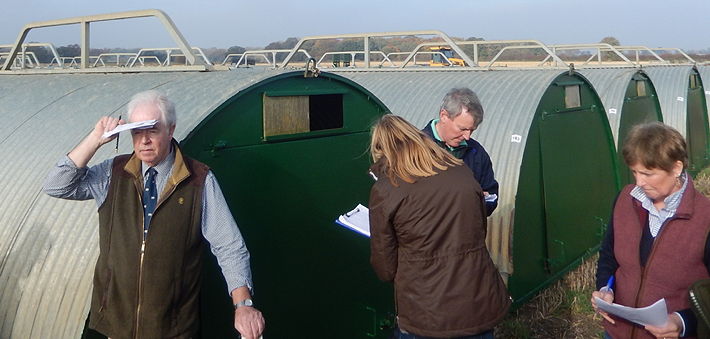Although the SPP went up by 1.87p to stand at 148.22p this was mainly because fewer “emergency slaughter” heavy pigs were included in the sample, but next week unfortunately the SPP looks as though it will continue to slide.
UK weekly contribution prices have eased a touch in some cases and stood on in others, with most now between 130p and 141p.
Supply continues to outstrip demand by a significant margin with cheap imports from the EU being the main culprits, but with the average EU pig price at around 105p/kg there is still a long way to go before UK pig meat can retain its competitiveness in the current bear market.
Some spot bacon deals have been agreed at around the 125p/kg mark with a touch more for regular sellers, but those producers looking for homes for surplus output may have to take not much more than 110p/kg at a time when feed costs are going through the roof.
Despite a slight improvement in the value of the Euro which traded on Friday worth 84.6p compared with 84.37p a week ago, cull sow prices have remained eye-wateringly low with most culls traded at around 26p/kg and the only positive note is that there seems to be a slightly better demand for numbers at these bargain basement prices with a few more culls being moved, but financial returns remain at miserable levels with an average load of culls worth in net terms little more than £38/head.
Contract weaners are continuing to slide in value and, although no AHDB prices were quoted this week, seven days earlier Freedom Food farm assured 7kg piglets averaged £34.78/head ex farm. But there is almost nil demand for one-off spot loads of Red Tractor or non-farm assured weaners, some of which are being literally given away by breeders desperate for space which is still very tight in the rearing and finishing sector.
Rising feed prices are adding yet more damage to producers’ bank balances with UK feed wheat quoted at £218/t for December delivery and September 2022 also reflecting bullish trends with deals agreed at £194/t.
Spot ex farm wheat values continue to soar with the overall UK average now breaking through the £200/t barrier to stand at £203.30/t, which is £20/t above its value a year ago.
Feed barley continues to chase wheat and has hit the £204/t mark for December and £182/t for September next year.
Protein prices are also continuing to harden with December Hipro soya deals agreed at close to £370/t and longer months saw soya at £329/t for May – October 2022.
Rapemeal deals continue to rise with December – January 2022 traded at £298/t compared with £276/t a week ago.
And finally, thanks to the hard work put in by the NPA and AHDB although a number of measures are being put in place to try and ease financial pressures on UK pig farmers, these are in the (almost) words of a well known supermarket a case of ‘very little hurts’ rather than ‘every little helps’.
These initiatives include private storage aid which does at least take the product off the market, but rather like a second mortgage can push prices down when released in six months’ time.
The proposed suspension of the 85p/pig levy is a drop in the ocean towards the daunting losses being faced by producers, but the most recent initiative has been for a slaughter and cull scheme for rendering, details of which have just been published.
These include the use of an established pig abattoir to slaughter overweight pigs which have been locked up in the supply chain and for them to go for rendering rather than food consumption, which seems a sad waste of a high welfare resource produced at great expense and toil by hard pressed producers.
Although this is designed to reduce the number of heavy pigs locked up in the system, it comes at a cost with the producer having to meet slaughtering charges and haulage which according to industry sources could amount to somewhere in the region of £30/head for a bacon pig, which under normal circumstances would be worth £120/head or more.
The availability of current emergency heavy hogs slaughter arrangements operated by a major processor whereby producers receive around 70p/kg is a much more attractive alternative in these desperate times and it remains to be seen how many will use the slaughter and rendering cull scheme.
At least these emergency measures will not dilute the SPP, which has been the case with the 70p/kg heavy pig slaughter scheme, much to producers’ fury.
It is good to see however a big player in the pig processing sector has cut their £12.50 price reduction to £5 for contract suppliers, but unfortunately there are more brickbats than bouquets in these desperate times for the pig industry as a whole.




